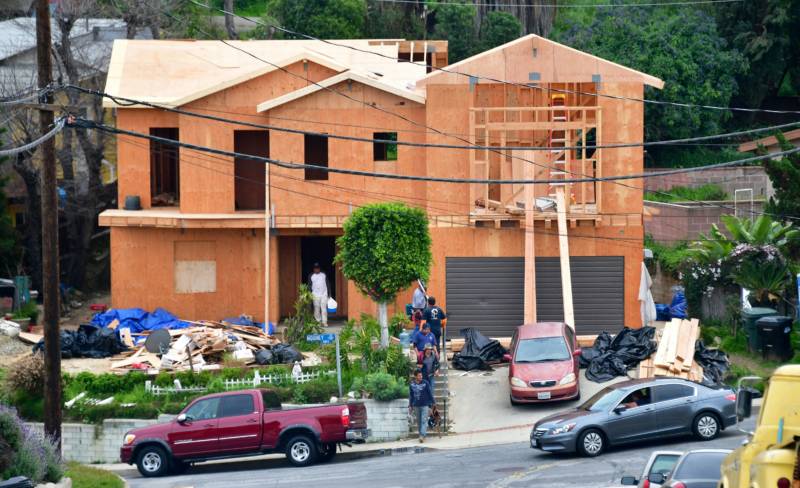A bill to increase housing density in California was blocked in the state Legislature on Thursday, all but ensuring that the state's most controversial housing proposal is dead for the year.
Controversial Housing Density Bill Blocked in State Legislature

At a hearing of the Senate Appropriations Committee, Chairman Anthony Portantino, D-Pasadena, announced that Senate Bill 50 would be shelved until 2020, the second year of the legislative cycle.
The decision effectively derails a bill that sparked fierce debate in the Legislature and in city councils across California over whether the state should compel communities to build more housing.
SB 50 would have greatly expanded the capacity for new home construction by virtually eliminating single-family zoning. The construction of fourplexes would have been legalized throughout the state, overriding local zoning restrictions. And in larger counties, more dense, taller apartment complexes — up to five stories high — would be allowed near transit and job centers.
State Sen. Scott Wiener, D-San Francisco, who authored the legislation, vowed to continue moving the bill forward.
"We’re going to keep working and keep advocating and we’re going to do everything in our power to get this bill passed," Wiener said. "If not this year, then next year."
The move by Portantino came during the appropriation committee's suspense file process, when hundreds of bills requiring state spending are considered en masse. The process allows bills to be killed or delayed without any discussion or explanation, giving committee chairs and legislative leadership the unilateral ability to halt controversial legislation and shield their members from difficult votes.
"Sen. Portantino made the decision to not allow the bill to move right now and to make it a two-year bill," Wiener said. "But ultimately no decision is permanent and final in the legislative process, and if there’s a political will, things can change."
Advancing the bill this year would require a legislative Hail Mary, and Senate President Pro Tem Toni Atkins signaled that it would lie dormant until January.
"As a two-year bill, the Legislature can continue this critical conversation with housing advocates, local communities and all interested parties," Atkins said in a statement.
Last year, a similar bill from Wiener that focused on housing near transit stops failed to advance past its first committee. SB 50, however, cleared two committee hurdles with bipartisan support.
But opposition to the bill never relented, both from suburban communities opposed to giving up local zoning control, and tenant groups worried that increased development would lead to displacement of renters.
"We are pleased that SB 50 did not go forward," said Michael Weinstein, president of the AIDS Healthcare Foundation, a leading opponent of the bill. We believe we can [address the housing crisis] while preserving neighborhoods, protecting against gentrification and maintaining local zoning."
Weinstein's group mounted a controversial campaign attacking the bill, featuring cable ads that compared SB 50 to the "urban renewal" programs of the 1960s and 1970s that led to the displacement of thousands of residents in San Francisco's historically African-American neighborhoods.
Portantino's decision to hold the bill drew criticism from Gov. Gavin Newsom, who said he was "disappointed" by the move.
"I admire and applaud Sen. Wiener for his doggedness and leadership," Newsom said, after attending an event in San Francisco. "Those that oppose it, I appreciate, but what are they promoting as an alternative to address this issue with the kind of certainty and aggressiveness that is required at this moment?"
But Newsom, who on the campaign trail laid out the ambitious goal of building 3.5 million new homes by 2025, never actually endorsed the bill and publicly offered only measured support for its provisions.
"I wasn’t surprised at all that the governor would express broader desires, as opposed to endorsing specific bills," Wiener said.